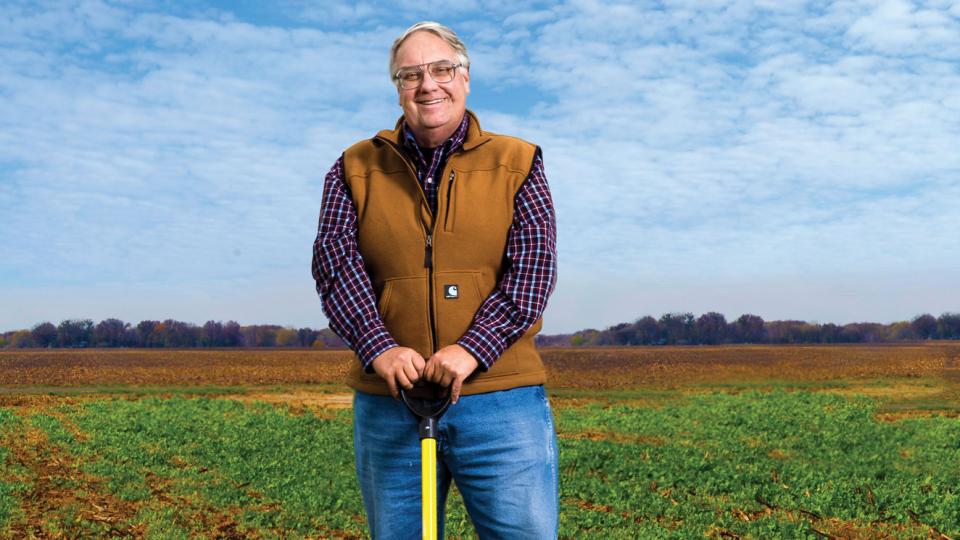HOWARD BUFFETT WANTS TO END HUNGER BY 2046

Howard Buffett is on deadline. In 2006, his father, U.S. investor and philanthropist Warren Buffett, challenged him to do something great in the world – and gave him $1 billion to do it. So he gave himself 40 years to spend every penny in a bold attempt to end global hunger. After a second stock gift in 2012 and favorable returns, he has about $3 billion now. An Illinois farmer, Buffett spends part of the year in the cab of his tractor and the rest of his time leading the Howard G. Buffett Foundation. He's barreled headfirst into his task, visiting more than 100 countries to research the scope of the issue. So far, his work has funded research into drought-tolerant crops, supported the mapping of food insecurity in America, and will pull nearly 50,000 Central American farmers out of poverty.
The Rotarian: How does your experience as a farmer tie into your foundation? I understand there's research happening on your farms.
Howard Buffett: We're working with a lot of different universities to learn. For example, we are trying to figure out how to grow rice and corn with significantly less water. That will help in water conservation, and it also will help in areas of the world where you have less water. We're looking at different farming systems in terms of carbon release, in terms of yield, in terms of soil erosion. We have plots in South Africa, in Illinois, and in Arizona. We're doing a study on African agricultural productivity based on a number of issues, including political restraints and productivity of soil. We'll have that out in 2014, and it will contradict some of the mainstream thinking that Africa can feed the world. We'll go in-depth in 10 countries and talk about the things that have to happen if these countries are even going to feed themselves. Our plan is to challenge the status quo.
What has been your biggest success so far?
We've had huge success with something called P4P, or Purchase for Progress, with the World Food Programme. We'll pull close to 50,000 farmers across four countries in Central America permanently out of poverty. We train farmers in business and production methods, and then WFP guarantees that it will buy from those farmers for things like school feeding programs and emergency relief. WFP buys thousands of tons of food. Because they guarantee they'll buy it, we don't have to worry about what happens if we train all these farmers and they can't sell something. When we walk away from this program, most of those farmers will be in the marketplace. In fact, almost half those farmers are already selling to other entities. They don't need us anymore. That's the beauty of the program.
Rotary is also shifting toward more sustainable projects. How do you think Rotarians could help with your efforts?
I've actually thought about how great Rotary would be in eastern DRC because when you're trying to rebuild a society, what's the first thing you do? You have to build camaraderie. You have to build trust. You have to build a social conscience. Rotary clubs do that.
You decided that your foundation would go out of business in 40 years – is that to maintain a sense of urgency?
If you think that way, you're going to act differently. We will go out of business in 40 years from 2006. That's set in stone.
What do you hope to accomplish by then?
I hope we will have shaken up the conversation, challenged people, and challenged processes. I hope we help people think about issues differently and even change the mindset a little bit – like that it's OK to fail.
Your dad calls you the Indiana Jones of philanthropy. What drives you to work in some of the world's most dangerous places?
I want to understand the full picture of hunger, and conflict is a main cause. Nearly 60 percent of the hunger in Africa is caused by conflict.
But why is alleviating hunger so important to you that you'd risk your own life by going into a conflict zone?
People are living in these circumstances. That's their life. I get to go home. When you start doing things in areas that are difficult, you find people who are so committed, and you feel like, "Well, if they're not giving up, I can't give up."
Adapted from an interview in the April 2014 edition of The Rotarian
Vanessa Glavinskas